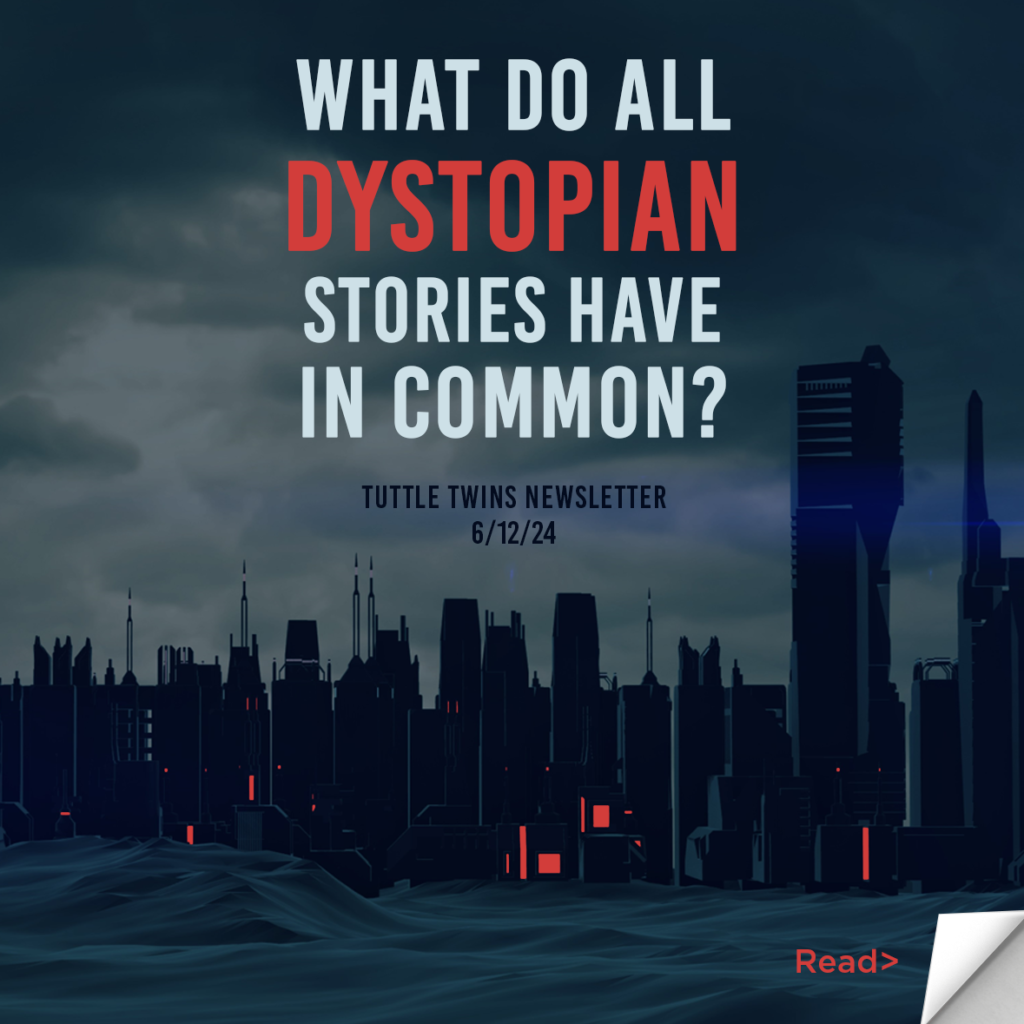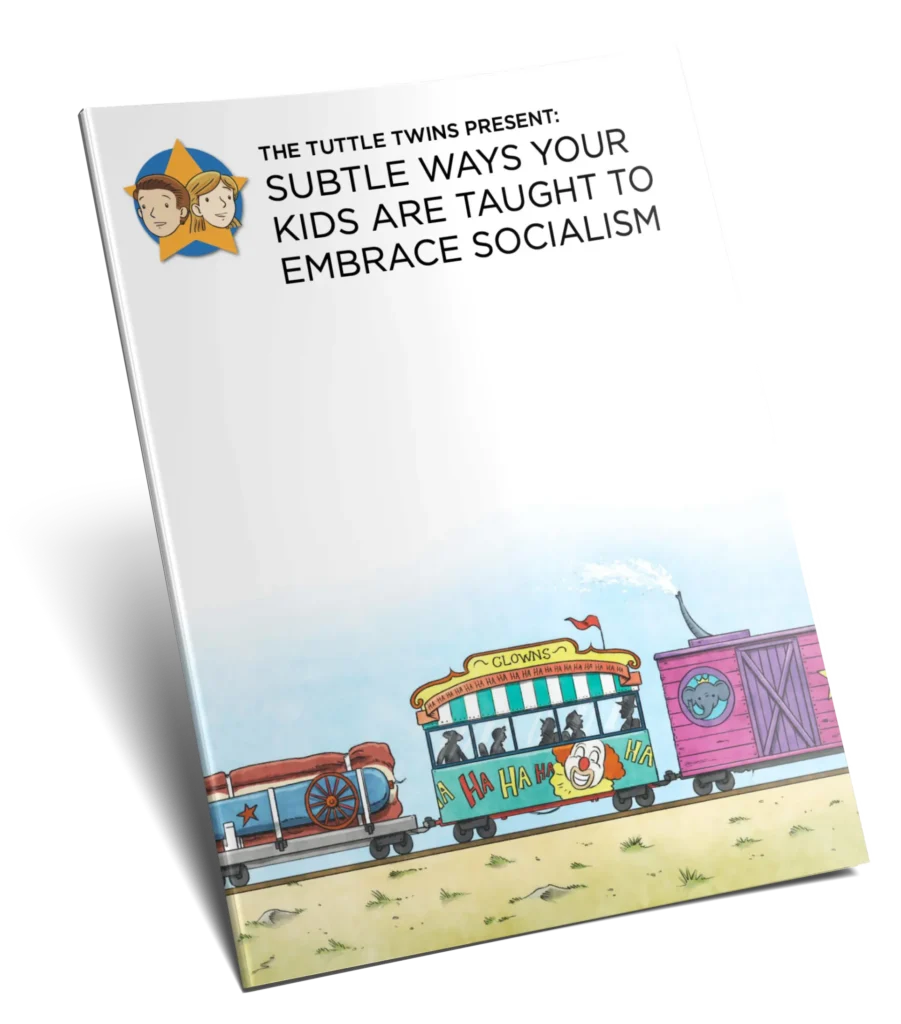
 Whoaaaa, we’re halfway there…
Whoaaaa, we’re halfway there… 
Speaking of things that rocked in the ’80s (and still do), remember how good the movies used to be?
A few months ago, I talked about how films like The Goonies and The Lost Boys helped kids like me grow up thinking that we could literally do anything so long as we had some good friends, some bikes, and a little bit of luck.
As my kids get older, I have a lot of opportunity to think about the types of books and movies that I feel are of the most benefit in helping to shape their views—both of themselves, but also of the world around them.
I’ve found that a lot of what’s out there is anti-family, anti-faith, and frankly, anti-human. And it’s not even a new trend.
One genre that I’ve realized has pretty constant anti-family messaging is dystopian fiction. In almost all of these stories, there is a systematic effort by some group or individual to sever the connection between parent and child.
This isn’t just a creative plot device—it reflects real historical and contemporary strategies used by those in power to control and manipulate society.
Understanding this helps us see how fiction mirrors reality and underscores the importance of parental influence in kids’ lives.

Dystopian fiction often showcases authoritarian regimes using various tactics to undermine familial bonds, ensuring the younger generation’s allegiance to the state or the ruling power over anything else.
In George Orwell’s 1984, for instance, the state seeks to control every aspect of life, including the family.
Children are encouraged to report any signs of disloyalty to the Party, even from their parents, breaking down trust within families and ensuring that the Party remains the primary influence in children’s lives.
Similarly, Aldous Huxley’s Brave New World features a society where traditional family structures are obsolete.
Children are artificially created and raised by the state, eliminating parental influence entirely. This allows the state to mold citizens’ beliefs and behaviors from birth.
(I’m sure you’re noticing the not-so-subtle message here: keep parents out, control the kids, and voila, a compliant society.)
In Lois Lowry’s The Giver, families are carefully controlled and constructed by the society’s leaders. Emotional bonds are discouraged, and children are assigned to family units rather than being born into them. This control ensures that loyalty lies with the community’s rules and leaders rather than with individual family members.
These fictional examples reflect real historical efforts to weaken the family unit and consolidate power. But let’s not kid ourselves; reality can be just as unsettling as fiction.
Throughout history, various regimes have employed similar tactics.
In Nazi Germany, the Hitler Youth was a key tool for indoctrinating young Germans with Nazi ideology. Children were taught to prioritize loyalty to Hitler and the state over their families and were even encouraged to report any anti-Nazi sentiments expressed by their parents.
During Stalin’s rule in the Soviet Union, the Komsomol (Communist Union of Youth) played a significant role in spreading Communist ideology. Children were often turned against their parents, who were portrayed as enemies of the state if they expressed dissenting views.
In the Chinese Cultural Revolution, the Red Guard—a youth movement—was used to enforce Communist principles. Young people were encouraged to denounce their parents and other relatives who held traditional or counter-revolutionary beliefs, leading to widespread family breakups.
If this doesn’t sound like dystopian fiction come to life, I don’t know what does.
Closer to home, the residential school systems in Canada aimed to assimilate Indigenous children by removing them from their families and communities. These schools sought to erase cultural identities and sever familial bonds, and the long term impacts were devastating.
Today, we see echoes of these historical patterns in various forms.
In some regions, educational systems promote ideologies that many parents find controversial or in conflict with their family culture or beliefs. Policies that allow children to make significant decisions about their identity without parental consent undermine parental authority and involvement.
The increasing reach of digital surveillance raises concerns about privacy and control. Governments and corporations collecting extensive data can influence and monitor family dynamics without parents even realizing it.
Laws that limit parental rights in areas such as health care and education are also designed to weaken the family unit. For example, some states have implemented policies that restrict parents’ ability to make informed decisions about their children’s health and well-being.
I think it’s really important for kids to read fiction that makes them feel independent and empowered. Even though dystopian fiction often portrays bleak scenarios, it offers a powerful message about the importance of family and the resilience of the human spirit.
But I also think that one of the key elements of these stories should be how the kids draw on what their parents have taught them, even if they are separated from their parents in the story.
Finding little in the way of teen dystopian fiction with positive parental influences, I decided to take matters into my own hands.
In The Tuttle Twins and the Days of Darkness, Ethan and Emily find themselves in a world plunged into chaos, and their parents far away. They see the up-close reality of what happens when polite society breaks down, and how the heavy hand of government tries to grasp control of people and property.
Despite the dire circumstances, the twins rely heavily on the lessons and values their parents have instilled in them. The story highlights the importance of parental influence and the power of critical thinking and resilience.
Plus, this adventure puts teen readers in control by allowing them to make critical decisions that determine the twins’ fate at various points in the story.
With four possible endings and 475 pages of content, this book is a full-blown experience.
It’s more important than ever to equip our teens with the knowledge and tools they need to navigate the hardships and complexities of an ever-changing world. The Tuttle Twins and the Days of Darkness does just that.
We can’t predict the future, but we can prepare our kids to face it with wisdom and courage. By helping them understand the value of liberty and the potential dangers of unchecked authority, we are empowering the next generation to safeguard the freedoms we all hold dear.
So whether for your own family, or as a gift to a friend or loved one, now is the perfect time to grab a copy or two of Days of Darkness. It promises to entertain, educate, and inspire teens to think about how quickly the world around them can change, and to imagine themselves as the hero.
I’m grateful to parents like you for allowing us to be part of your journey.
Together, we can raise a generation that values freedom, critical thinking, and the irreplaceable bond between parent and child.
— Connor

